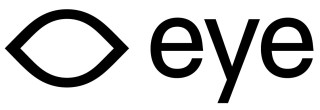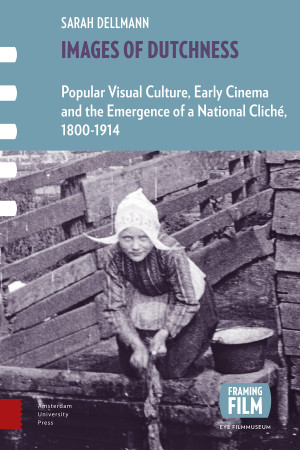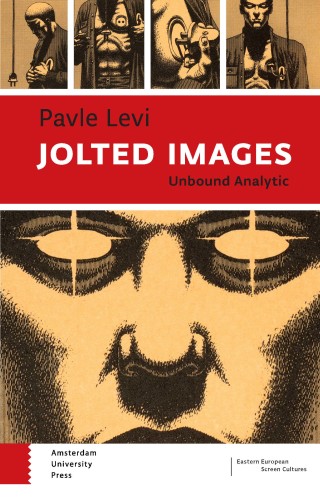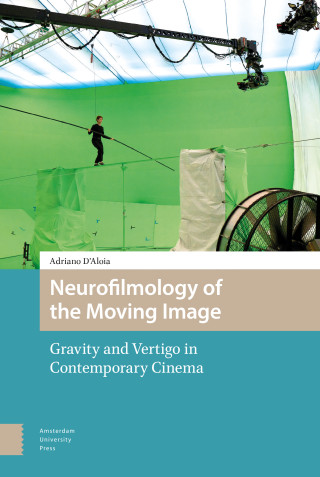

- Titel
- Images of Dutchness
- Subtitel
- Popular Visual Culture, Early Cinema and the Emergence of a National Cliché, 1800-1914
- Auteur
- Sarah Dellmann
- Prijs
- € 56,95 excl. BTW
- ISBN
- 9789462983007
- Uitvoering
- Paperback
- Aantal pagina's
- 424
- Taal
- Engels
- Publicatiedatum
- 06 - 10 - 2018
- Afmetingen
- 15.6 x 23.4 cm
- Open access
- Download op Open Access Platform
- Serie
- Framing Film
- Partner

- Categorie
- Film Studies
- Discipline
- Film, media en communicatie
- Voorbeeld
- Download introductie
- Ook beschikbaar als
- eBook PDF - € 0,00
ACKNOWLEDGEMENTS
INTRODUCTION
CHAPTER 1: Analysing Images of Dutchness: From Stereotype to National Cliché
1.1 Introduction
1.2 Supposed Common Knowledge and the Stereotype
1.3 Nationality, Nationalism, Nationness - The Netherlands, Dutch, Dutchness
1.4 Approaches
1.5 Outlook
CHAPTER 2. Spectacularly Dutch: Popular Visual Media from Print to Early Cinema
2.1 Introduction
2.2 Illustrated Magazines
2.3 Travel Guide Books
2.4 Travel Brochures, Leaflets, and Promotional Material for (potential) Tourists
2.5 Sets of Prints, Cartes de Visite and Cabinet Cards of people in local Costume
2.6 Catchpenny Prints
2.7 Perspective Prints
2.8 Advertising Trade Cards
2.9 Stereoscopic Photographs
2.10 Magic Lanterns and Lantern Slide Sets
2.11 Picture Postcards
2.12 Film
CHAPTER 3. Images of People and Places before 1800. A Pre-history of National
3.1 Introduction
3.2 Visual Culture before Industrialization
3.3 The same image at various places for the first time: Images of People and Places in Popular Print
3.4 Epistemological Status of Images of People and Places
3.5 Topographical Images: Vedute, Prospects and Perspective Prints
3.6 Realist images of People in Popular Media: Catchpenny Prints
3.7 Eighteenth-century images of People and Places in Other Popular Media
3.8 Conclusion
CHAPTER 4: Authentically Dutch: Images in Anthropological Discourse
4.1 Introduction: Snelleman's conceptual problem
4.2 Visual Spectacle of Ethnic Diversity: Afbeeldingen van kleeding, zeden, en gewoonten (1803-1807)
4.3 Relics of Tradition, Grounded in Space. Nederlandsche Kleederdrachten, en Zeden en Gebruiken (1849-1850)
4.4 The Nation in One Image: Volkeren van verscheyde Landgewesten (c. 1833 or 1856-1900) and In deze prent zullen de kinderen opmerken= (c. 1800-1820)
4.5 Narrowing Down the Motifs: Popular Photographs (1870-1890's)
4.6 Fixing the National Cliché (1890-1900)
4.7 Playing with the Cliché (c.1900-1914)
4.8 Dutch Clichés of Dutch Origin: Trade Cards by Philips and Bensdorp
4.9 "Dutch" as Combination of Costume and "Race"
4.10 Early Cinema's heritage of Anthropologic discourse
4.11 Conclusion
CHAPTER 5: Typically Dutch: Images in Popular Geography and Armchair Travel Media
5.1 Introduction: Geography and Popular Science
5.2 Patterns for the Presentation of Knowledge in Geographic Discourse
5.3 The Encyclopaedic Pattern
5.3.1 Voyage Pittoresque dans la Frise (1839)
5.3.2 Dutch Life in Town and Country (1901)
5.3.3 "A North Holland Cheese Market" (1910)
5.3.4 Advertising Trade Cards: Myrrholin Welt Panorama (1902)
5.3.5 Film: Comment se fait le fromage de Hollande (1909)
5.4 The Panoramic Pattern
5.4.1 Voyage pittoresque dans le Royaume des Pays-Bas (1822/1825)
5.4.2 Advertising Trade Cards:"Holland in Wort und Bild" (1903)
5.4.3 Stereocards: Holland (1905)
5.4.4 Films: De dam te Amsterdam omstreeks 1900 (1900) & De Amsterdamse Beurs omstreeks 1900 (1900)
5.5 The Virtual Travel Pattern
5.5.1 Voyage Pittoresque en Hollande et en Belgique (1857)
5.5.2 "Croquis Hollandais" (1905) and "Door Holland met pen en camera" (1906)
5.5.3 Lantern Slide Set: Quer durch Holland (1906)
5.5.4 Films: Prinsengracht (1899), A Pretty Dutch Town (1910) and
Vita d'Olanda (1911)
5.6 Conclusion
CHAPTER 6. Selling a "Dutch Experience": Images in Tourism and Consumer Culture
6.1 Introduction: Discovering the Authentic
6.2 Before Tourism: Travel in Leisure Through and to The Netherlands
6.3 Travel Promotion by Thomas Cook & Son, VVV and Centraal Bureau
6.4 Narrated and Practical Guide books
6.5 The Cliché in Consumer Culture: Dutchness in Advertising Trade Cards
6.6 Picture Postcards
6.7 Lantern Slide Sets
6.8 Film
6.9 Ways of Looking at Dutchness: Reactions to the Cliché
6.10 Conclusion
7. CONCLUSION
7.1 Towards an Archaeology of Filming "the Nation/al"
7.2 Outlook
ANNEX
8a Bibliography
8b Published Sources
8c Other Sources and Ephemera by Medium
8d Digital Resources
8e List of Figures
Recensies en Artikelen
Longlisted for the 2019 Kraszna-Krausz Best Moving Image Book Award!
"The seven chapters of the book are neatly organised. Each chapter is richly illustrated with colourful reproductions of the broad variety of visual material. [...] The daring research on meaning production through different media present in her book will certainly be taken into account when thinking about future digitalisation of archive collections."
- Marte Van Hassel, Université Libre de Bruxelles, TMG Journal for Media History, 22, 1 (2019)
"This book is valuable for several reasons, last but not least for its cutting-edge approach to the question of the representation of "national identity" from a visual and cultural angle."
- Annie van den Oever, University of Groningen / University of the Free State
"The seven chapters of the book are neatly organised. Each chapter is richly illustrated with colourful reproductions of the broad variety of visual material. [...] The daring research on meaning production through different media present in her book will certainly be taken into account when thinking about future digitalisation of archive collections."
- Marte Van Hassel, Université Libre de Bruxelles, TMG Journal for Media History, 22, 1 (2019)
"This book is valuable for several reasons, last but not least for its cutting-edge approach to the question of the representation of "national identity" from a visual and cultural angle."
- Annie van den Oever, University of Groningen / University of the Free State
Sarah Dellmann
Images of Dutchness
Popular Visual Culture, Early Cinema and the Emergence of a National Cliché, 1800-1914
De onderstaande tekst is niet beschikbaar in het Nederlands en wordt in het Engels weergegeven.
Why do early films present the Netherlands as a country full of canals and windmills, where people wear traditional costumes and wooden shoes, while industries and modern urban life are all but absent? Images of Dutchness investigates the roots of this visual repertoire from diverse sources, ranging from magazines to tourist brochures, from anthropological treatises to advertising trade cards, stereoscopic photographs, picture postcards, magic lantern slide sets and films of early cinema.
This richly illustrated book provides an in-depth study of the fascinating corpus of popular visual media and their written comments that are studied for the first time. Through the combined analysis of words and images, the author identifies not only what has been considered Ÿtypically DutchŒ in the long nineteenth century, but also provides new insights into the logic and emergence of national clichés in the Western world.
Auteur
Sarah Dellmann
Sarah Dellmann worked as researcher and lecturer at Utrecht University, University of Groningen and Amsterdam University College, the Netherlands. Her main research interests lie in the field of early cinema studies as well as visual history and culture of the nineteenth and twentieth centuries, with a focus on Western media history.




